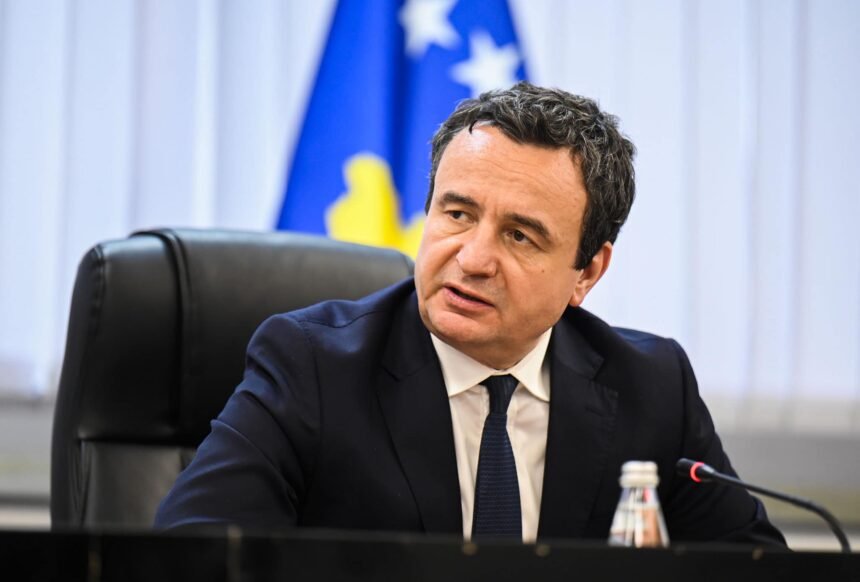Kosovo’s acting Prime Minister Albin Kurti has stated that the Serbian community in Kosovo deserves equal access to public goods, stressing that the current dual health and education system is unsustainable, reports RFE.
In a video message sent to the media, Kurti said:
“Integration and unification are necessary. I do not want to do this against you or without you. In our next mandate, together with all of you – including future mayors – we will work on incorporating health and education into one single system.”
Kurti emphasized that this process will be carried out in cooperation with international partners, including the European Union, the Quint countries, and KFOR, while reaffirming that the Kosovo Constitution guarantees the rights and freedoms of all citizens.
Currently, all health and education institutions in Serbian-majority areas of Kosovo operate under Serbia’s system, which both local Serbs and Belgrade describe as crucial for the community’s survival.
The largest Serb political party in Kosovo, Srpska Lista, reacted strongly, warning that Kurti’s statement represents a threat:
“Health and education are the pillars of the Serbian people’s survival and they will remain so. All international agreements confirm that these are separate systems. This is a direct threat, and we expect a stronger reaction from the international community.”
The controversy follows last week’s decision by Kosovo authorities to suspend the operations of the Health Insurance Fund and the Pension and Disability Fund in North Mitrovica, citing a lack of valid documentation. The move sparked criticism from Germany, the EU, and Serbia, who urged Pristina to avoid unilateral actions and consult with the Serbian community.
Kurti, however, rejected accusations of targeting Serbian institutions, insisting that Kosovo’s actions were based on legality and transparency. He also pointed out that his government had invested over €14 million in subsidies for minority communities during the last two and a half years under Minister Nenad Rašić.
He further called on Kosovo Serbs not to believe “war-mongering rhetoric from Belgrade officials about alleged attacks or pogroms being prepared by the Kosovo government.”
Meanwhile, Serbian officials, including Petar Petković, head of the Serbian Government’s Office for Kosovo, and Foreign Minister Marko Đurić, condemned the suspension of Serbian funds in Kosovo, calling it an “inhumane and unacceptable act” and accusing Pristina of using the issue as part of its local election campaign ahead of October 12.
The U.S. Embassy in Pristina also weighed in earlier this month, stating that all Serbian parallel institutions in Kosovo – including health and education – must be integrated into Kosovo’s system, but stressed that this process must be carried out in consultation with the Serbian community.







